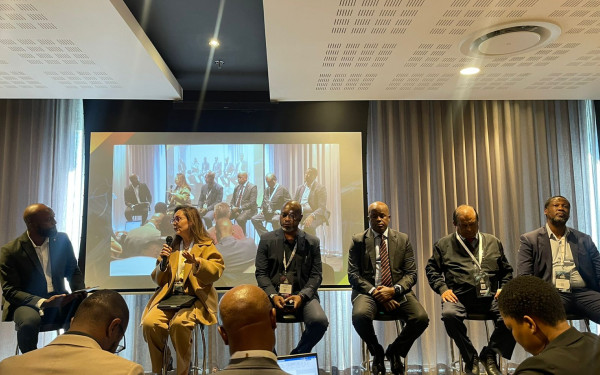As South Africa invites investment in large-scale infrastructure projects, blended financing and public-private partnerships (PPP) have emerged as viable solutions to mobilize private participation in projects. A panel discussion during the Sustainable Infrastructure Development Symposium of South Africa (SIDSSA) – taking place March 17-19 – underscored the role these capital-raising solutions play in the country.
“Following the string of [global] shocks we have seen, it is clear that the way the governments finance development has changed. Government has re-thought the way they finance development and we are helping them. Financing the required infrastructure needs to involve private sector,” stated Leila Mokaddem, Director General: Southern Africa, African Development Bank.
Taking place on March 17-19 at the Century City Conference Center, SIDSSA brings together key stakeholders in South Africa and across the continent with the aim of driving infrastructure development. SIDSSA 2024 serves as a crucial platform for discussions and partnerships in the infrastructure investment landscape, with a focus on accelerating economic activity through strategic infrastructure plans. Energy Capital&Power – the leading investment platform for the African energy sector – is a media partner for this important platform. For more information, visit https://SIDSSA.org.za/.
To address the country’s infrastructure challenges, South Africa requires up to R4.7 trillion in investment. As such, Joey Pillay, Director Chief Director: PPP of the Western Cape Government, underscored that “The investment required is fairly substantial and significant.”
Development finance institutions such as the Industrial Development Corporation (IDC) play a key role in supporting project development and closing the investment gap. According to Andy Tambwe, Head: Technical Services of the IDC, “The IDC perspective is to look at the development, economic viability, and transformation of the landscape [of a project]. We want to be involved where we can facilitate the creation of jobs, opportunities for black empowerment, and to develop an impact.”
Similarly, the Infrastructure Fund was established to bridge the gap between public sector projects and private capital. Mohale Rakgate, Chief Investment Officer at the Infrastructure Fund, explained that, “The reason for the existence of the Infrastructure Fund is blended finance and projects that require blended finance. These are projects without fiscal support, which won’t be attractive for the private sector.”
To date, the Infrastructure Fund has been able to “close to R70 billion worth of projects that are now ready to go out to market,” Rakgate added.
Financial services group Nedbank also provides blended finance and PPP support, and given the high-risk nature of projects within this realm, the institution looks at mitigating risk. Zakhele Mayisa, Co-Head: Africa Infrastructure Finance at Nedbank, stated that “We mitigate some risks by ensuring we have the right partners where we are invited or are proactively engaged in blended financing arrangements.”
Distributed by APO Group on behalf of Energy Capital&Power.
About SIDSSA 2024:
SIDSSA 2024 is organized by the Investment and Infrastructure Office under the Presidency, in collaboration with the Association of African Exhibition Organizers. The National African Federation for the Building Industry joins as an association partner, while the Development Bank of Southern Africa is the official sponsor of the event. The Masterclass on Sustainable Infrastructure Development is held in collaboration with the National School of Government.

